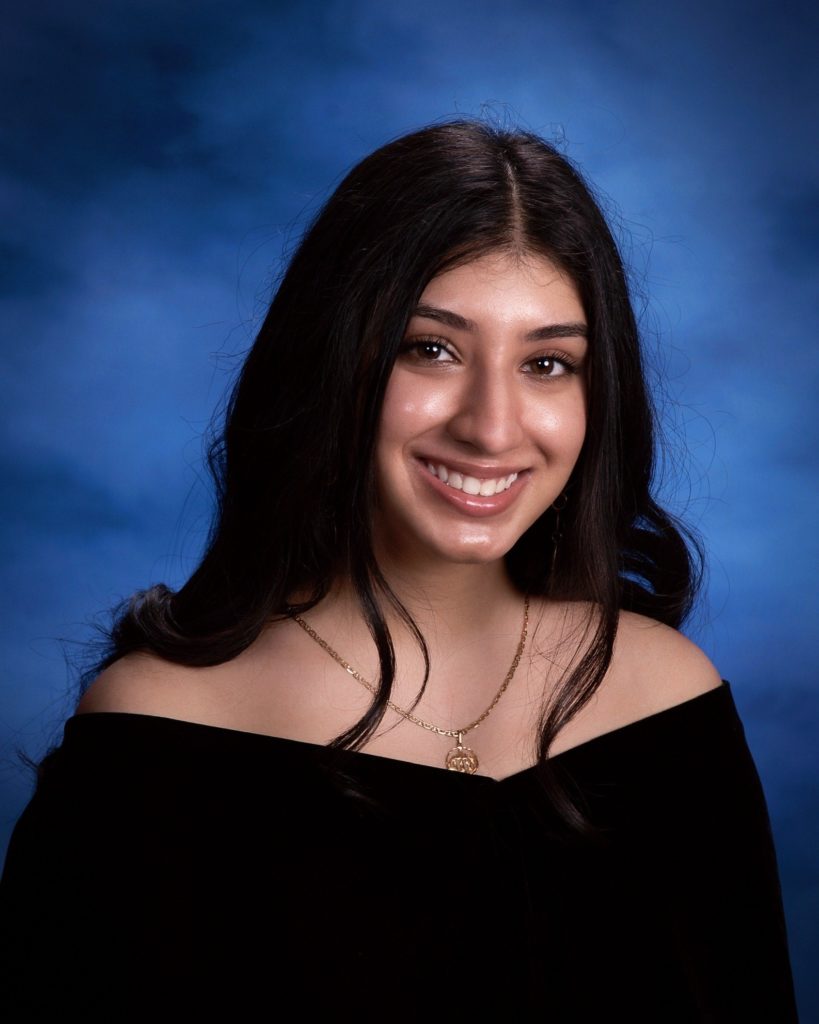I was a junior at Valley View High School in Moreno Valley, CA when COVID-19 hit. After classes moved online, I missed talking to my friends in person, and I was really bored. I was also curious about what life during the pandemic was like in different parts of the world. As a member of the National Honor Society, I still needed to do volunteer work. So, I came up with a way to help young people like myself feel less isolated by starting a pen pal program with students at a rural school in Kenya.
The school is Nyamboyo Technical School, which enrolls about 60 students, ages 14-20, most of whom struggle with poverty, hunger, and access to clean water and health care. Students can choose from four professions for their studies: dressmaking and tailoring, electrical wiring, hairdressing, and masonry and carpentry. Purely by coincidence, another NHS student—Noah Jung at Maggie L. Walker Governor’s School in Richmond, VA—edited a professional-quality video on the school’s web page that gives a good introduction to its mission.
When I became NHS president my senior year, we expanded the program to reach more students at Nyamboyo. I thought a pen pal program would be a fun and engaging way for the students in Kenya to learn English instead of staring at a textbook. For American students, the program is an antidote to ignorance because we learn from our peers in Kenya about their country and how people live there.
I love learning about my pen pal, Edwin. He’s studying masonry and carpentry now, and it’s really interesting to hear about his life because it’s so different from mine. Even though I’m in my first year of college now, I still stay in touch with him. In fact, I just sent him a letter today.
Because of differences in technology, it’s not easy for us to send messages back and forth. The only decent technology students have is in their schools. On the American side, we send emails that get set up on Google Docs, which are then sent to the principal in Kenya to print out for the students. On the Kenyan side, students write letters, which get scanned and sent to us.
One thing this program has done is teach me a lot about global health, especially issues young women face. When girls there menstruate, they don’t have access to feminine hygiene products so they use dirty rags, and they’re unable to attend school. I thought, if menstruation is getting in the way of these girls receiving an education, maybe we can come up with an affordable sanitary pad that can make it easier for them to attend school.
I met a woman in California last year who takes extra fabrics from her clothing design studio and makes pants and sends them to Kenya. And I thought, why can’t we do that with pads for girls? We could raise money for the supplies, which would be proper fabric that would last a long time and could be washed properly. The pads would be made by volunteers here and then sent to the women in Kenya so when it’s that time of the month, there is no reason to miss school. I hope we can get this program started soon.
The pen pal program has made a huge impact on my life, and it has changed my career plans. Before, I had a narrow mindset about what a career in medicine could offer. My goal is still to attend medical school, but I don’t want to practice in an American hospital. I want to see and help people in other parts of the world.


2 Comments
How did you get this started? I would love to do something like that at my school.
Wow great and interesting story!!